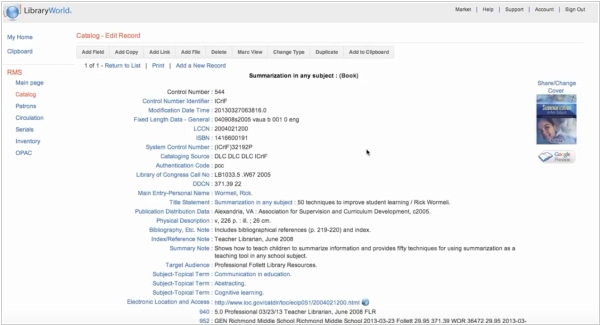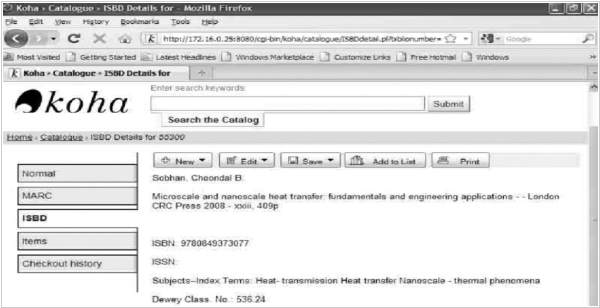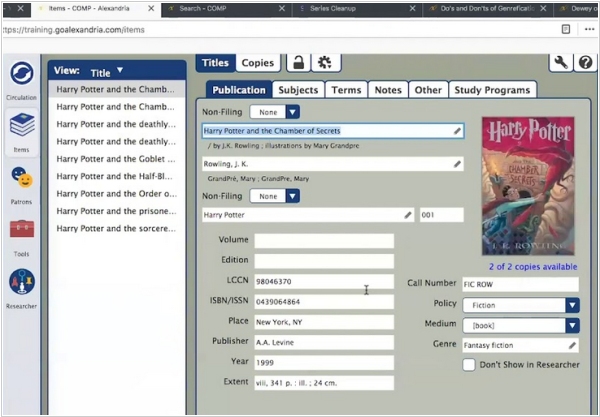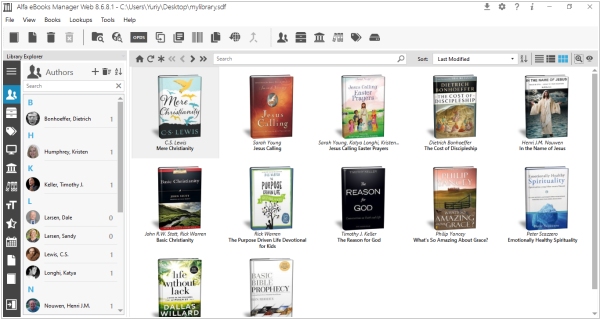Top 4 Software for Church Libraries
April 19, 2023 | Author: Maria Lin

Church libraries, often overlooked but quietly crucial, serve as a peaceful refuge where one can expand both faith and knowledge, often without the distraction of misplaced hymnals or half-forgotten bake sales. They offer spiritual resources, educational materials, and—perhaps most importantly—a tranquil spot to contemplate the universe, or at least the more manageable parts of it. But as with all good things, they do come with the rather less spiritual challenge of organization. Luckily, in a world where even your toaster is smarter than it needs to be, managing a church library is a task that can be conveniently offloaded to specialized software. So, in this article, we’ll delve into three fantastically helpful, or at the very least less-baffling-than-paper-cards software solutions to keep your church library ticking over without a hitch.
1. LibraryWorld

LibraryWorld may sound like a theme park for books, but it’s actually a streamlined, web-based system perfect for church libraries. It lets you easily catalog, manage circulation and track borrowing with the flick of a barcode scanner. Congregants can browse the library’s offerings and reserve or renew items online from the comfort of home. Its user-friendly design and automated features make it a top choice for churches looking to simplify library management without sacrificing functionality.
2. Koha

Koha, with its melodious name, might sound like a friendly island retreat where your books go to relax, but it’s actually an open-source library system that promises to make your life infinitely easier while costing you nothing but your sanity (and maybe a bit of technical expertise). Designed by a worldwide community of brilliant-but-slightly-eccentric tech wizards, Koha offers all the essentials: cataloging, circulation, managing patron records and even keeping an eye on fines, which, while spiritually awkward, remain a necessity when someone "accidentally" forgets to return The Power of Now for the third time. Best of all, Koha’s web-based interface is so adaptable it works on any device—whether you're checking in from a shiny new tablet or an old laptop that’s seen better days. And as an open-source project, it’s gloriously free, a fact that will undoubtedly warm the hearts of budget-conscious church treasurers everywhere.
3. Alexandria

Then we come to Alexandria, a name that immediately makes one think of the Great Library of Alexandria, where, one assumes, some of the earliest arguments about overdue scrolls must have taken place. The Alexandria software may not be quite as legendary, but it’s certainly a solid contender for managing your church library with the precision of a well-oiled time machine. This all-encompassing library management tool handles check-ins, check-outs and everything in between, all while offering delightful features like robust reporting, so you can finally get some real data on how often The Life of Pi gets borrowed and whether anyone actually returns it. Alexandria supports barcode scanners and even RFID technology, ensuring that inventory management becomes less of a headache and more of a mild existential crisis. Patrons, bless their inquisitive hearts, can browse the catalog, reserve items and even write reviews—though one can only hope those reviews are kinder than some of the Amazon ones.
4. Alfa Ebooks Manager

Alfa Ebooks Manager is a simple, budget-friendly solution for smaller church libraries. It’s easy to set up and includes handy features like cataloging, circulation and reporting. A built-in web server lets congregants access the catalog on the local network and an Android app allows quick ISBN scanning. With its straightforward interface and advanced options like metadata management, it’s an ideal choice for churches that want a no-fuss, efficient library system.
See also: Top 5 Library Management Software
Add comment


